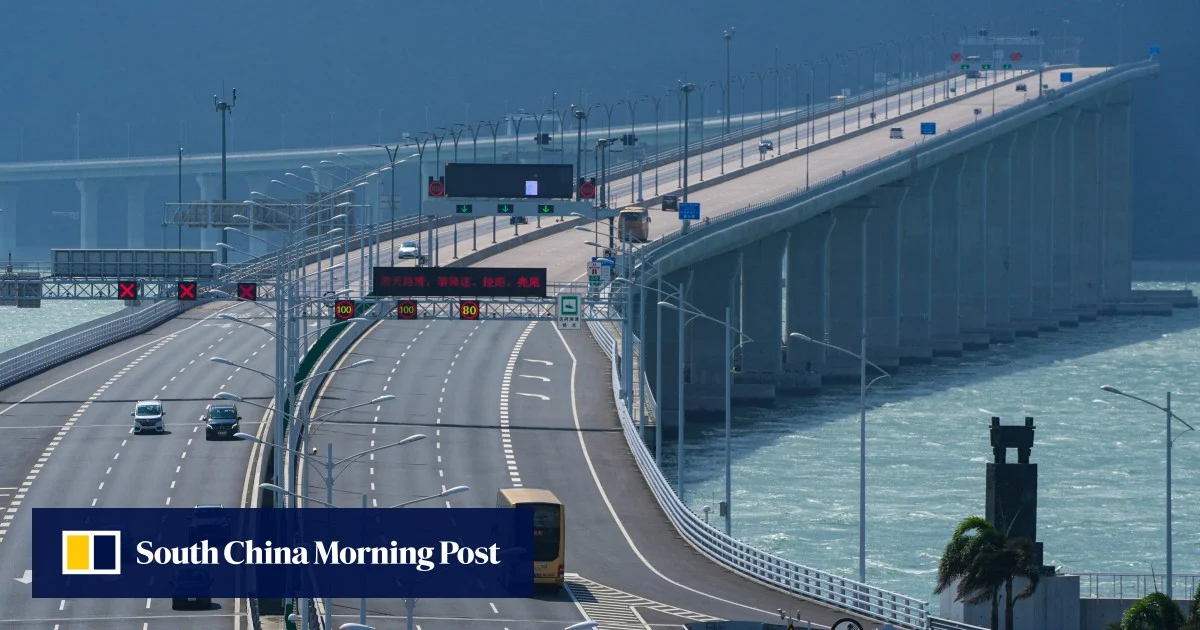Saturday, May 17, 2025
US has joined Canada, Mexico, Singapore, UK, Australia, and the United Arab Emirates in launching a new travel rule aimed at banning hidden hotel fees, marking a unified international effort to enhance price transparency across the hospitality sector. This coordinated move responds to growing global consumer backlash against deceptive pricing tactics—commonly involving undisclosed resort, amenity, or service charges added at checkout. With the U.S. Federal Trade Commission’s new regulation taking effect on May 12, 2025, all mandatory fees must now be included in the advertised price, aligning U.S. policy with long-standing measures in other nations to ensure travelers know the true cost of their accommodations upfront.
United States Implements Landmark Rule Against Junk Fees
In a major win for travelers, the United States began enforcing its newly approved FTC regulation on May 12, 2025. Known widely as the “junk fees” rule, the regulation targets deceptive pricing practices across the travel industry. The law mandates that all hotels, motels, vacation rentals, and ticketing platforms disclose the full cost of a booking upfront. This includes any mandatory resort, amenity, or cleaning fees.
For example, a hotel advertising a $300 room with a $50 resort fee must now display the price as $350 at the outset. These new requirements apply not only to hotels but also to platforms such as Airbnb and event ticket sellers like Ticketmaster, which often included hidden service charges only at the final stage of checkout.
The regulation was introduced after years of mounting consumer complaints and pressure from advocacy groups. The FTC has the authority to impose penalties exceeding $50,000 per violation, offering strong deterrents against noncompliance. Travelers encountering violations are encouraged to report issues via the FTC website or the Consumer Financial Protection Bureau.
Canada’s Provincial Approach to Transparent Pricing
While Canada does not have a unified federal regulation specifically banning hidden hotel fees, several provinces enforce consumer protection laws that require full disclosure of all charges. Ontario, for example, mandates that all mandatory fees be presented clearly and prominently before a booking is finalized. This ensures travelers are not caught off guard by surprise charges at the point of payment.
Canada’s decentralized but strict provincial enforcement aligns closely with the goals of the U.S. FTC regulation, providing Canadians with a similar layer of travel protection.
Mexico’s Emphasis on Disclosure Laws
In Mexico, hidden hotel and resort fees are not uncommon, particularly in popular tourist destinations. However, consumer protection agencies require that these fees be disclosed upfront. Any resort or amenity fee must be clearly outlined in the initial advertisement or booking page, complying with Mexican transparency laws.
This approach has proven effective in protecting international travelers, particularly in high-traffic resort areas such as Cancún, Los Cabos, and Playa del Carmen.
Singapore’s Transparent Service Charge Policies
In Singapore, most hotels include a standard 10% service charge in their rates. The country enforces strict transparency requirements, meaning that hotels must include such fees in the displayed price. Failure to do so can result in legal action.
This aligns with Singapore’s broader commitment to consumer rights and fairness in travel-related transactions. The system aims to create a hassle-free booking experience where the price seen is the price paid.
United Kingdom: Commitments from Travel Platforms to End Drip Pricing
The United Kingdom has played a key role in the international movement toward price transparency. In 2019, the UK’s Competition and Markets Authority (CMA) reached agreements with major online travel agents to overhaul how accommodation prices are presented. These platforms—responsible for millions of bookings—committed to displaying the total cost, including all mandatory fees, upfront.
The UK’s approach focused on eliminating “drip pricing”, where initially low prices would balloon at the last stage of booking. Since then, British regulations have pressured both domestic hotels and global booking sites to ensure consumers see the full, honest price before making a purchase decision.
Travelers in the UK now benefit from:
- Clearly stated total accommodation costs including taxes and service fees.
- Transparency across third-party booking platforms and direct hotel websites.
- Greater ability to compare prices across multiple providers without hidden costs.
These efforts position the UK as a leading example of regulatory cooperation between consumer watchdogs and the private travel sector.
Australia: Strict Consumer Laws Uphold Honest Advertising
Australia enforces some of the world’s strongest consumer protection regulations through the Australian Competition and Consumer Commission (ACCC). Businesses—including those in the hospitality and travel industries—are required by law to display all mandatory fees and charges as part of the advertised price. Failing to do so is considered misleading conduct under the Australian Consumer Law.
In the hospitality sector, this means hotels, resorts, and online platforms must:
- Present the total price, inclusive of service charges, resort fees, and known taxes.
- Avoid ambiguous or unclear pricing language.
- Disclose fees before the final booking stage, or risk legal action.
The ACCC has actively pursued enforcement against violators, ensuring travelers booking in Australia are shielded from bait-and-switch tactics. This legal structure supports consumer trust and aligns Australia with the FTC’s new rules in the United States.
Taiwan Requires Full Price Disclosure
Taiwan has established strong consumer protection laws that require full price disclosure for hospitality services. The total price, inclusive of any taxes and service charges, must be displayed at the time of booking. Travel platforms and hotel websites that fail to do so are subject to fines and potential legal action.
This model is now reflected in the new U.S. regulation, highlighting Taiwan’s influence in global travel standards.
Hong Kong Mandates Honest Pricing Practices
Hong Kong also mandates that all hospitality pricing be transparent. While hotels often include a 10% service charge, this amount must be included in the displayed price. Failure to comply with this requirement can lead to penalties under Hong Kong’s Trade Descriptions Ordinance.
By including service charges in the initial price, Hong Kong eliminates confusion and ensures consumer trust in booking platforms and hotels.
UAE Aligns Hospitality Sector with Price Clarity
The United Arab Emirates has taken proactive steps to ensure that the hospitality industry operates with pricing transparency. Hotels in cities like Dubai and Abu Dhabi are required to present total pricing—including tourism fees and service charges—before finalizing bookings. The country has made it clear that misleading advertising or unclear pricing structures will not be tolerated.
These regulations are enforced both by tourism departments and municipal bodies, creating a multi-level approach to protecting traveler interests.
Why the Global Shift Toward Transparent Hotel Pricing Matters
Hidden hotel fees—commonly labeled as resort fees, amenity fees, or service charges—have long frustrated travelers around the world. While the base rate may appear attractive, final costs often exceed expectations due to mandatory add-ons. This practice has hindered fair comparison shopping and misled consumers.
The newly enforced U.S. rule is part of a global trend. By joining countries like Canada, Mexico, Singapore, Taiwan, Hong Kong, and the UAE, the United States contributes to a unified international effort aimed at eliminating deceptive travel pricing.
Transparent pricing enables travelers to:
- Accurately compare costs across hotels and platforms.
- Avoid unexpected charges at checkout.
- Make informed financial decisions when booking vacations or business trips.
- Enjoy greater trust in the travel and tourism industry.
Scope of the Rule Beyond Hotels
The U.S. FTC regulation extends to other sectors of the travel industry, including:
- Vacation Rentals: Platforms like Airbnb and Vrbo must show all cleaning and service fees upfront.
- Live Event Tickets: Companies such as Ticketmaster must advertise ticket prices with all associated service and processing fees included.
- Online Booking Platforms: All digital travel agencies must comply by adjusting pricing algorithms to reflect true final costs from the start of the booking process.
This broad application amplifies the regulation’s impact and brings U.S. policy in closer alignment with international standards.
Enforcement and Penalties
To ensure compliance, the FTC will monitor websites, conduct audits, and follow up on consumer complaints. Companies found to be in violation may face penalties exceeding $50,000 per offense. This aggressive enforcement underscores the importance of fair practice in the U.S. travel economy.
Travelers are advised to report violations through official government websites if they encounter discrepancies between advertised and actual costs. These reports are critical to maintaining accountability across the travel and hospitality industries.
The US has joined Canada, Mexico, Singapore, the UK, Australia, and the UAE in enforcing a new travel rule that bans hidden hotel fees, requiring all mandatory charges to be included in advertised prices. This global shift aims to protect travelers from deceptive pricing and promote full transparency in the hospitality industry.
With the enforcement of its new “junk fees” rule, the United States has taken a major step forward in joining a global movement toward honest and transparent hotel pricing. Alongside Canada, Mexico, Singapore, Taiwan, Hong Kong, and the UAE, the U.S. is now part of a broader coalition of nations determined to protect consumer rights in the travel sector.
This unified effort marks a turning point in global tourism, ensuring that travelers worldwide can book with confidence, knowing the price they see is the price they’ll pay.



